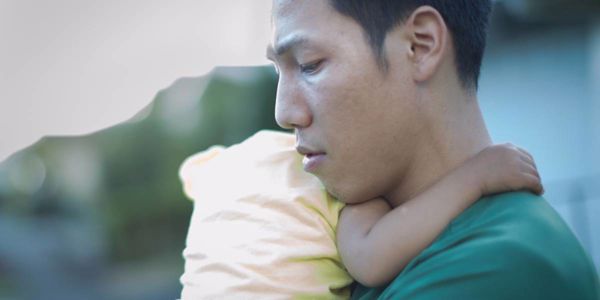Welcoming a new baby into the world is certainly a transformative journey. It’s one that’s filled with many joyous and happy moments, however for lots of parents out there, it also comes with unexpected challenges.
Traditionally, post-birth a lot of focus is placed on the mother and her mental wellbeing.
Recent studies and statistics however shed light on the mental health risks faced by dads. It’s time we recognise and address the reality of postnatal depression in all parents and offer support, understanding and practical solutions to both the mums and dads out there navigating this complex journey together.
The Hidden Toll of Being a Dad
The journey into parenthood feels like a relentless race of physical, emotional and social adjustments. It’s a huge lifestyle change. Research indicates that the risk of postpartum depression extends beyond that of the birthing parent. Supporting parents, including dads are equally susceptible to experiencing depression during this adjustment period.
Recognising Postnatal Depression in Dads
Depression in new parents, whether it emerges during pregnancy or after the baby’s born differs from the common ‘baby blues’. Postnatal depression is characterised by persistent feelings of sadness and hopelessness. It’s often accompanied by physical symptoms too such as fatigue, changes in appetite and difficulty sleeping. Here are some things to look out for in recognising postnatal depression in dads:
- Moodswings
- Persistent feelings of sadness
- Change in appetite
- Withdrawal from activities
- Lack of bonding with the new baby
- Changes in any work habits
- Relationship strain between the mother and father
- Fatigue and low energy
- Suicidal thoughts
Despite the prevalence of these symptoms, many dads are hesitant to ask for help, citing concerns about societal expectations, time constraints and feeling overwhelmed. However, having untreated depression can have terrible effects on all family members. Timely intervention and support is crucial.
Breaking the Stigma of Paternal Depression
Historically, discussions surrounding postnatal depression have predominantly centred around mothers, relegating paternal experiences to the sidelines.
Emerging research however indicates that up to 10% of dads may experience postpartum depression. This is comparable to up to 20% of women who may experience postpartum depression.
Identifying depression in fathers can be challenging as symptoms may manifest themselves differently from those in mothers. Whilst some are similar such as fatigue and changes in appetite, others may display differently such as withdrawal and irritability. Here are a few ways we can break the taboo of paternal depression:
- Education and awareness
- Normalise discussions about paternal depression
- Advocate for media coverage and representation
- Establish peer group support forums online
- Support healthcare professionals in recognising paternal depression
- Shout about father-inclusive services
- Use inclusive and non-judgmental language
- Celebrate fatherhood
Seeking Support for Paternal Depression
Recognising the signs of depression is the first step towards seeking support. It’s essential to seek support by reaching out to a healthcare provider, attending support groups or accessing online resources. Seeking support is not a sign of weakness but a courageous step forward towards healing.
Here are some examples of avenues of support:
- Acknowledging feelings
- Seeking support from a healthcare provider, support group or family members
- Individual or couples therapy
- Medication
- Self-care practices
- Explore community resources
Supporting a Partner With Paternal Depression
Supporting a partner with paternal depression requires empathy, patience and understanding.
Encouraging open conversation and active listening can create a safe space for fathers to express their emotions and seek assistance. Engaging in activities together, whether it’s baby care tasks or leisurely outings can encourage connection and alleviate feelings of isolation.
Treatment options for postnatal depression range from therapy and medication to lifestyle changes and support networks. Encouraging open conversation, prioritising self-care and seeking assistance from family, friends or support groups can all contribute to alleviating the burden of depression.
Parenthood is a journey fraught with challenges, triumphs and moments of profound transformation. By recognising the realities of postnatal depression in dads we can create a more inclusive and empathetic support system for families navigating this unchartered territory.







